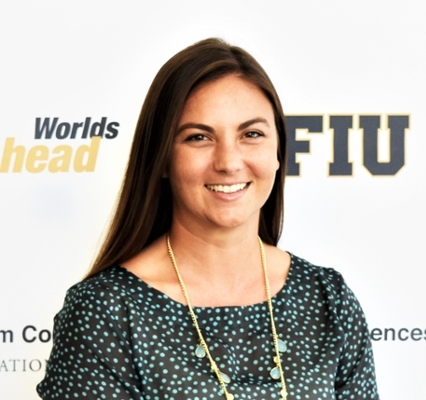
Dr. Carson has two lines of research aimed at addressing important, yet understudied, issues facing children with autism and their families: (1) decreased sound tolerance (DST) and (2) drowning prevention. To address these understudied problems, she has established multidisciplinary collaborations.
She has presented at 36 state/regional, 8 national, and 7 international conferences and has given 8 invited talks. Her work has been featured in 11 media outlets and she has published 9 peer-reviewed manuscripts to date with several in progress.
Decreased Sound Tolerance.Dr. Carson’s publications on DST in autism have been highly impactful. Her brief report titled: Prevalence and Severity of Auditory Sensory Over-Responsivity in Autism as Reported by Parents and Caregivers was published in the Journal of Autism and Developmental Disorders provides evidence from a large dataset confirming that DST is much more prevalent in autism than the general pediatric population. This article is ranked in the 97th percentile (ranked 4th) of articles published at the same time in JADD (as of January 21, 2025).
After establishing the increased prevalence of DST in autism, she and colleagues (Dr. Angela Medina and Dr. Yuxi Qiu) began to address the critical gap in pediatric DST assessments. First they developed and tested the Pediatric Hyperacusis Questionnaire (P-HQ). This work has been presented nationally and internationally and is published in the International Journal of Audiology and is ranked in the top 25% of all research outputs ever trackedby Altmetric. Researchers from around the world have contacted Dr. Carson to report their studies of the P-HQ in other languages and cultures including Turkish, Malay, Hebrew, Brazilian Portuguese, Persian, Tamil/Sinhala, and Chinese.
This assessment was then further improved and studied with support from the Wertheim Endowed Innovation Award resulting in the Pediatric Misophonia and Hyperacusis Questionnaire (PMHQ-4; Carson et al., in press). The PMHQ-4 is the first valid parent-report questionnaire aimed at identifying and differentiating two of the most common DST conditions (hyperacusis and misophonia) in a single questionnaire. Based on qualitative findings from these studies, Dr. Carson and her team developed the Inventory of Decreased Sound Tolerance (I-DST), a checklist intended to help clinicians with treatment planning after a DST condition has been identified (Carson et al., in press).
In occupational therapy (OT) practice, she developed a treatment program combining sensory-based self-regulation strategies from OT with cognitive behavioral therapy, and behavioral management strategies from psychology to comprehensively address DST for autistic children. She has recently published a clinical case report detailing this approach in Frontiers in Psychiatry.
Through this work, Dr. Carson has achieved her goal of developing an intervention and a valid assessment of DST in pediatrics that will not only improve identification of DST conditions in pediatrics but will enable clinicians and researchers to monitor treatment outcomes for children with autism.
Drowning Prevention. Drowning the leading cause of injury or death for children. Those with autism are at significantly higher risk. Adequate access to swimming instruction is a necessary part of the solution to this global health crisis. Although teaching a child to swim is well within the scope of most rehab professions; curricula on this topic are lacking. To address the current lack of swim instructors skilled at working with children with disabilities, Dr. Carson established an interdisciplinary team of researchers to conduct studies on the training needs of professionals in aquatics, physical therapy, occupational therapy, and recreational therapy. After establishing consensus for the need for training opportunities, she developed an interdisciplinary training program for students at FIU and is studying training outcomes. As a PI has received several grants to support drowning prevention research at FIU including: the Carolyn L Tarloff Occupational Therapy Endowment ($2,700), a seed grant from FIU Embrace ($49,951), and the Department of Defense Congressionally Directed Medical Research Program (DOD CDMRP) Autism Research Program Autism Idea Award ($670,969) to evaluate the short- and long-term outcomes of the FIU-ASI curriculum. She is also a Co-Investigator on a project at The Ohio State University aimed at determining the real-world effectiveness of the AquOTic intervention for swimmers with autism.
Dr. Carson’s long-term goal is to equip rehab professionals with evidence-based training needed to improve access to drowning prevention services and to develop clinical tools needed to identify needs, intervene and monitor changes. Ultimately, she hopes to reduce the risk of drowning and increase safe participation in aquatics for those with disabilities, particularly autism.
